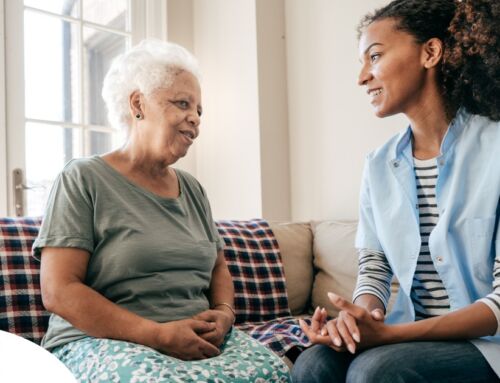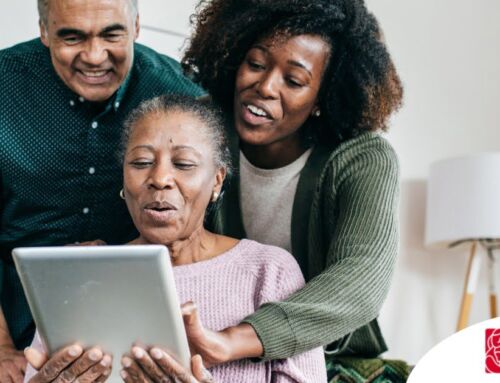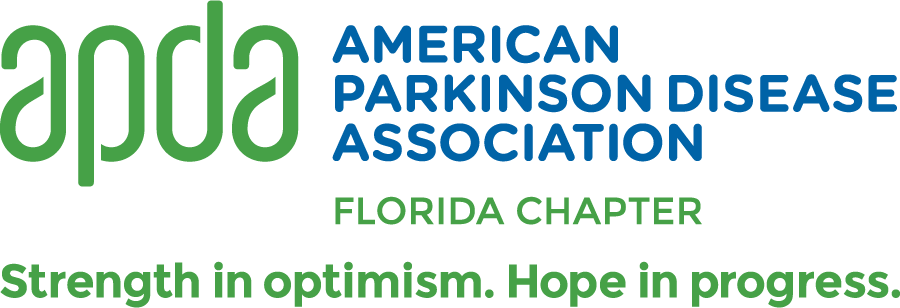A home health aide is an invaluable caregiver who provides assistance to individuals in their own homes. They are trained professionals who offer a wide range of services to ensure the well-being and comfort of their clients. While the primary responsibility of a home health aide is to assist with personal care and daily living activities, there are some surprising things that they can help with.
7 Surprising Things a Home Health Aide Can Help With
Companionship
Contrary to common perception, home health aides are not limited to physical care alone; they can also provide valuable support for clients’ mental well-being. Home health aides can offer emotional support, engage in conversations, and provide companionship, thus enhancing the overall mental health of their clients. Many elderly or disabled individuals may feel isolated or lonely, especially if they do not have regular social interactions.
The presence of a compassionate and caring home health aide can alleviate these feelings, providing someone to talk to and engage with on a daily basis. They can offer comfort, empathy, and provide a listening ear, fostering a sense of companionship and reducing feelings of loneliness and depression.
Meal Planning and Grocery Shopping
Proper nutrition is vital for seniors’ overall health, and home health aides can provide valuable guidance in this area. A home health aide can assist with meal planning and preparation. Eating a healthy and balanced diet is vital for maintaining good health, especially for those with specific dietary requirements or medical conditions.
Often working alongside nutritionists or dieticians, these caregivers help plan and prepare nutritious meals tailored to the specific dietary needs of their clients. Moreover, they can offer education on healthy eating habits and help seniors make informed choices when it comes to their nutrition.
However, for some individuals, cooking may become challenging due to physical limitations or cognitive impairments. Home health aides can not only plan nutritious meals but also assist with grocery shopping and meal preparation. They can ensure that their clients have access to proper sustenance, helping to maintain their health and well-being.
Memory Enhancement
Many home health aides are trained in memory enhancement techniques and can implement strategies to promote cognitive function. Through memory exercises, puzzles, and brain-stimulating activities, these caregivers can help seniors maintain and improve their memory abilities, ultimately enhancing their mental agility and overall quality of life.
Light Housekeeping
Keeping a clean home can be overwhelming, particularly for those with mobility issues or physical disabilities. A home health aide can assist with tasks such as dusting, vacuuming, tidying up, and organizing the living space. By maintaining a clean and clutter-free environment, they promote safety and a sense of calm for their clients. Additionally, they can lend a helping hand with laundry, ensuring that clothing and linens are washed, folded, and put away appropriately.
Medication Reminders
Many older adults take multiple medications throughout the day, which can be confusing and lead to errors. A home health aide can set up medication schedules, ensure that the right medications are taken at the correct times and dosages, and keep track of any changes or refills needed. This assistance ensures that their clients stick to their prescribed regimens, promoting optimal health outcomes and preventing medication-related complications.
Social Engagement
Isolation and loneliness are common concerns among seniors, leading to a decline in their mental and physical health. Home health aides understand the importance of regular social interaction and actively work to foster connections. They help facilitate social engagements, encourage participation in community activities, and accompany seniors to social events, ensuring their clients remain socially engaged and connected.
Transportation
For individuals who may find it challenging to drive or use public transportation due to physical limitations or disabilities, a home health aide can provide assistance with running errands, attending medical appointments, and obtaining groceries or medications. This support enables clients to maintain their independence and the ability to participate in community activities.
ADLs
Activities of Daily Living (ADLs) refer to the essential tasks that individuals perform on a daily basis in order to maintain their personal care and well-being. These activities encompass various aspects of our daily lives and are essential for self-care and personal hygiene. ADLs provide a framework for assessing an individual’s level of independence and determining their need for support or assistance. There are six primary categories of ADLs: bathing, dressing, eating, toileting, transferring, and continence.
A home health aide is often primarily brought into the home to provide support with these activities.
Wrap Up
While personal care and daily living activities are well-known responsibilities of a home health aide, their scope of assistance extends far beyond these tasks. They can provide emotional support, meal planning, and preparation, light housekeeping services, medication management, and transportation aid. The versatility and dedication of home health aides allow individuals to age or recover comfortably in the familiar surroundings of their own homes. Their presence and support can bring peace of mind to both clients and their families, making them an invaluable addition to the healthcare system.
~ ~ ~
For over 30 years, CareGivers of America has proven our leadership in the home health care industry while showing continuous dedication in referring the highest level of care. There is an alternative to nursing homes and assisted living facilities; Home Health Care. We serve families in the south Florida counties of Palm Beach, Broward, and Miami-Dade.
Do you have questions about how you can better support your loved one while they age in place in south Florida or regarding homecare in general? Please contact us here: Click here to contact us or call us toll free: 800-342-4197
Our amazing mailing list is where you’ll receive special content, click here to subscribe.
*No information in this article is to be taken as advice, medical or otherwise. This post is not sponsored, but may contain external links to websites, articles or product examples. External links are used for example or reference purposes only and these links do not indicate specific product or website endorsement by CareGivers of America.







